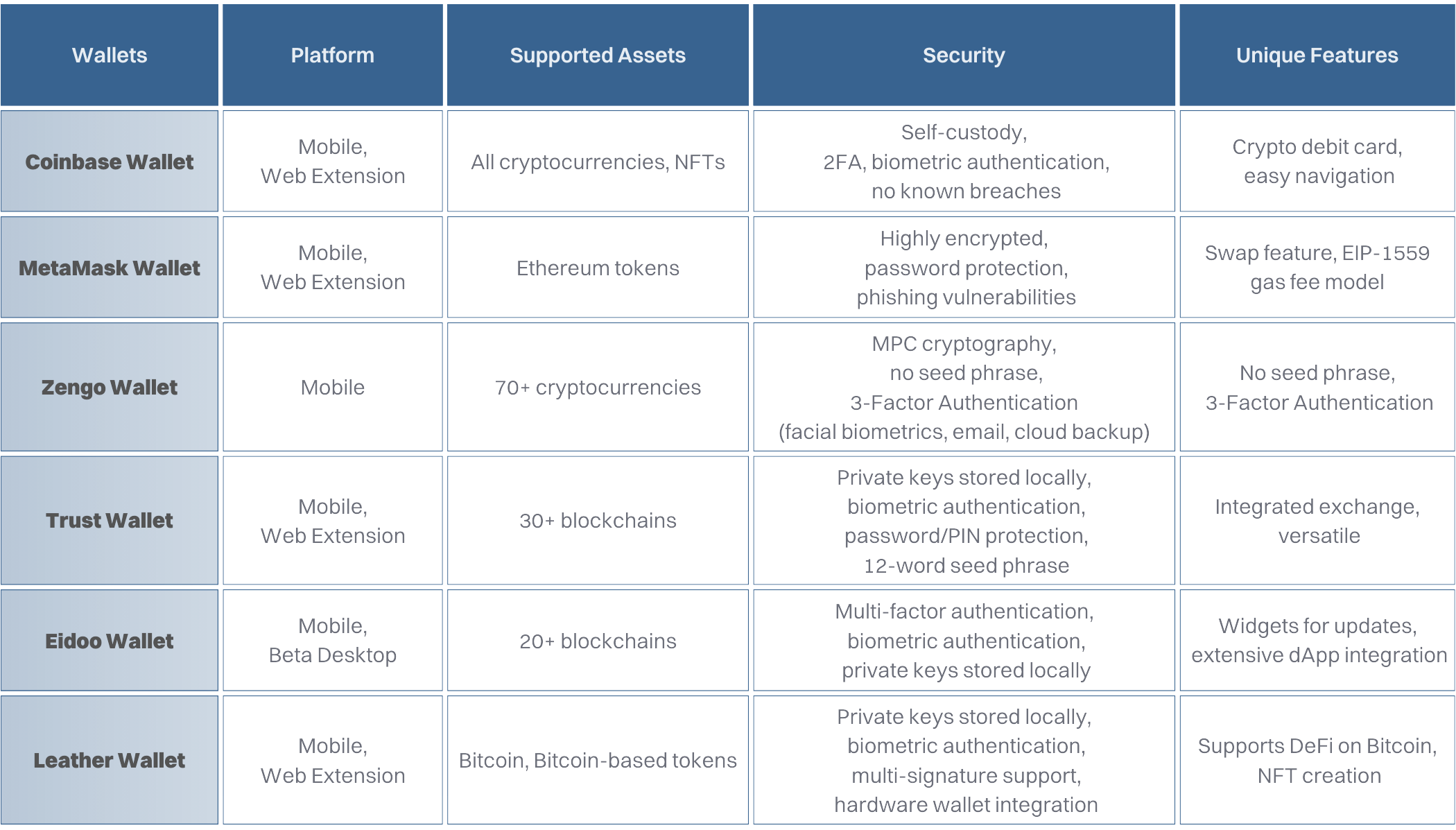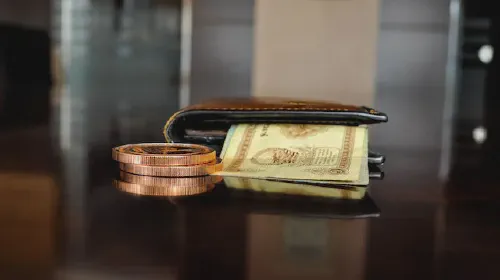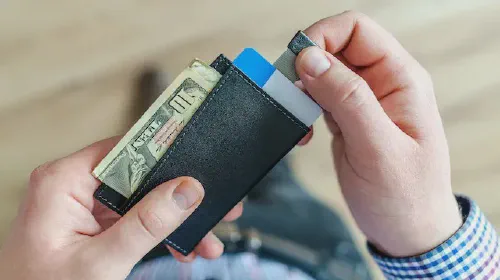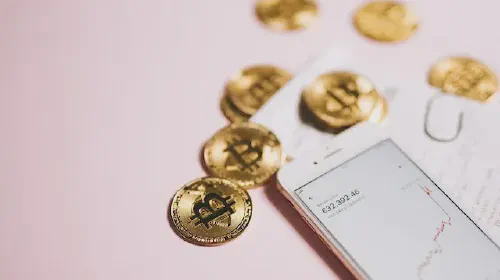Top 6 Best DeFi Wallets
Salomon Kisters
Jun 11, 2024This post may contain affiliate links. If you use these links to buy something we may earn a commission. Thanks!
Understanding DeFi Wallets
DeFi wallets are non-custodial, virtual wallets that can be accessed online. They store and distribute cryptocurrencies, and some of the popular wallets include Coinbase, MetaMask, ZenGo, Trust, and Eidoo Wallet. The term non-custodial refers to the user having full control over their private keys and assets, as opposed to relying on a third party to store their cryptocurrency. These wallets come with their own set of rules and regulations, as well as benefits and drawbacks.
Let us break down the term DeFi wallet to understand the concept better.
Overview

DeFi: Short for Decentralized Finance
As the term denotes, DeFi signifies a financial system free from any authority’s restrictions and control. It substantially differs from the traditional financial system our world is accustomed to. The DeFi system means moving assets or credit without restrictions, transfer charges, or monitoring by central authorities. You operate anonymously in the system, and no one can track your activity.
In layman’s terms, a wallet is described as something in which you store your money. The idea behind these crypto wallets is the same, with several useful modifications which make them compatible with cryptocurrency. The two classes of crypto wallets are hardware wallets and software wallets.
Hardware wallets use a physical device such as a USB stick to store the data corresponding to your cryptocurrency, which you can keep with you. They are manufactured by companies such as Trezor Wallet, Ellipal, and SecuX.
What is a DeFi Wallet, and How Does it Work ?
As discussed earlier, DeFi wallets store your crypto assets or currency and require a password and a seed phrase. Seed phrases are confidential phrases that can be used to access the crypto assets stored on the virtual wallet and will be required for your verification. They bypass monitoring by the government as they are part of the Decentralized Finance System on the blockchain network.
The infrastructure of these wallets is based on smart contracts, which makes them extremely secure to work with. By integrating smart contracts, the wallet leverages the power of the blockchain network, which makes it highly secure and adds anonymity and restriction-free access to your money. This anonymity also provides users with the ability to conduct transactions without the barriers they would normally face in the real world because they do not fall within a predefined set of categories established by the regulatory body.
Additionally, under the supervision of authority, there are limits to your transactions, like the amount that can be transferred or the number of times you can make a transaction. DeFi wallets allow you to evade these limitations, create new crypto tokens, use any financial product, or even construct your own application.
How do I Start Using a DeFi Wallet?
When you operate on the blockchain network, you choose between a hardware and a software wallet. In the case of DeFi wallets, you must install some sort of software or extension to initiate the process. Some applications are even available on mobile devices.
On your computer, you must download a web extension or a software application, depending on the type of your wallet. You can then sign up and start working. During this process, you will be given the seed phrase, which you must remember to maintain your account’s ownership.
Retain this seed phrase to access your wallet and any asset or currency it holds; losing it will render you penniless. Most wallets come from a crypto exchange which you can access to purchase cryptocurrencies and begin your journey on the blockchain platform.
If you wish to study crypto wallets further, check out our latest blog on crypto wallets.
So, What’s the Right DeFi Wallet?
With all the information thrown at you by people or wallet companies, it can be extremely challenging to pick a wallet that is just right for you. Hence, we have compiled a list of some of the top wallets and their specifications, which we hope you will find useful when deciding which wallet meets your personal requirements the best.
Coinbase Wallet
Available as an application for phones and an extension for computers (note: not the same as coinbase.com), Coinbase Wallet is free to download. It stores all cryptocurrencies and NFTs under one account/name in one wallet and continuously updates supported currencies based on their utilization.
The wallet is available in over 100 countries and is relatively easy to access. Like any DeFi wallet, it is a self-custody wallet, so you do not have to worry about trusting third parties. As of February 2023, the Coinbase Wallet has no significant history of breaches, making it quite safe to use.
Moreover, it is well known for its ease of navigation, making it highly recommended for crypto novices. The wallet is integrated with the Coinbase Exchange, providing better chances for refunds in case of losses due to cybersecurity-related issues and threats.
Additionally, Coinbase Wallet offers its customers a crypto debit card for a small fee, which can be used for everyday transactions and cash withdrawals at a negligible cost. The official website provides educational blogs and articles for business-oriented individuals looking to invest.
MetaMask
Available on the AppStore and PlayStore, as well as an extension supported by numerous widely used browsers, the MetaMask Wallet Wallet offers prompt customer service, a user-friendly UI, and the capacity to back up your account automatically. The ‘Swap’ feature allows you to exchange any Ethereum tokens you own for any other token, optimizing the trade by finding the most reasonable price with the lowest network fees and slippage.
The EIP-1559 gas fee model allows you to select between low, market, and aggressive gas fees, which can be preselected and adjusted for your transactions.
MetaMask provides access to various decentralized applications built on the Ethereum blockchain, including ETH-based games, crypto lending products, NFTs, and more. While users are primarily limited to the Ethereum network, it is possible to interact with other networks. However, MetaMask supports only Ethereum tokens, so you cannot purchase other tokens directly from the wallet. Nonetheless, you can buy cryptocurrency directly from your wallet across various networks such as Binance, Ethereum, Polygon, and Avalanche.
MetaMask uses highly encrypted and secure networks, making it nearly impossible for hackers to break in and steal funds. However, there have been instances where users lost their funds by giving up their seed phrase to phishing websites or hackers. Thus, security remains robust if you keep your seed phrase secure and avoid sharing it with anyone.
ZenGo Wallet
Available as an application for Android and iOS devices, ZenGo Wallet is renowned for its innovative approach to the maximum security of your funds. It is widely recognized in the crypto community for its unique security mechanism, which does not require a seed phrase. Instead, ZenGo uses two distinct security keys.
One key is stored on your cloud, and the other on ZenGo’s server. In the event of a breach, a hacker would need to obtain both parts of the key to gain access, making it nearly impossible to hack. This method, known as MPC (Multi-Party Computation) cryptography, is part of ZenGo’s 3-Factor Authentication system.
However, the trade-off is that you give up partial control of your assets to the wallet, making it partially non-custodial since you trust it with a part of your encryption key. Another drawback is that it is not available for direct desktop use, so you will need a phone to access it. ZenGo offers a partial instant crypto exchange service, allowing you to buy various cryptocurrencies. However, as of February 2023, the only currency you can sell directly through the wallet is Ethereum.
ZenGo Wallet provides access to dApps and includes a WalletConnect feature that links you to various NFTs, dApps, blockchain games, and other DeFi applications. It also allows you to modify and adjust your transaction fees according to your needs, providing more versatility and flexibility. Additional features include a user-friendly interface, lightning-fast customer support, and a built-in firewall.
Trust Wallet
Available as an application for iOS and Android, Trust Wallet is also available as a newly introduced extension for desktop use. Trust Wallet provides general features such as buying crypto and NFTs, accessing dApps, blockchain games, and other similar functionalities. Additionally, it allows users to invest directly through the wallet and start earning.
Trust Wallet supports tokens across several different blockchains, including ERC20, making it highly versatile for users who want to invest in a wide range of crypto assets or cryptocurrencies that are gaining popularity or increasing in value. Trust Wallet is an excellent choice if you wish to do more than just store cryptocurrency in your wallet.
The wallet features an integrated exchange system, allowing users to purchase cryptocurrency without connecting to another decentralized network. This integration reduces the need for increased gas fees, which can be unstable at times, and avoids the security risks of involving another platform, thereby saving both time and securing your funds.
Introduced relatively recently, Trust Wallet benefits from learning from the errors of other crypto wallets, filling the void left by such applications, and offering a superior user experience.
Eidoo Wallet
Eidoo Wallet is a popular DeFi wallet widely used by crypto enthusiasts around the world. It is available as a mobile application on the AppStore and PlayStore, and a Beta version for desktop use. We recommend using the mobile application as it has been well-established and serves as the wallet’s primary domain.
Eidoo Wallet provides general features and access to DeFi products and services, interconnects with multiple blockchain networks, and offers rigorous security checks, including multi-factor authentication and a recovery phrase to secure your data and account. It is well known for executing high-speed transactions, especially on dApps, and includes an exchange system to purchase various cryptocurrencies that you can use instantly within dApps.
The most popular dApps integrated with Eidoo Wallet include OpenSea, pNetwork, UNISWAP, 1inch, and Ledger. This extensive integration network grants Eidoo Wallet users an advantage when moving their cryptocurrency, allowing them to move assets swiftly without the hassle of connecting to external networks separately.
One unique feature that sets Eidoo Wallet apart is its widgets, which constantly update you on changes happening in the cryptocurrency world. Additionally, Eidoo Wallet boasts a user-friendly interface that many users find intuitive and easy to navigate, making it one of the most accessible wallets in the ecosystem.
Leather Wallet
Leather is the biggest and most popular Bitcoin wallet in the Stacks and Bitcoin developer’s community.
At its core, users can purchase, transfer, and accept tokens and collectibles through their Leather account. Additionally, users can link their accounts to a range of Bitcoin Web3 applications. This linkage unlocks the potential to create NFTs and Bitcoin Stamps, compose unique Ordinal inscriptions, trade BRC-20 tokens, and delve into Bitcoin DeFi platforms, among other advanced functionalities.
Similar to Metamask’s in-wallet features, as of Nov 2023, Leather supports a complete DeFi on Bitcoin enabled by ALEX by allowing users to swap assets directly on the wallet.
Conclusion
If you are looking for a DeFi wallet, consider taking a look at the options we discussed in this post. While some wallets support a large number of assets, others promise tighter security and full control over your data and funds. Ultimately, the decision is yours.
However, we recommend that you go with a wallet that combines adequate security, swift transfers, versatility, availability on multiple devices, and, most importantly, compatibility with the cryptocurrency or crypto assets you are interested in trading and investing in.
Stay informed with the latest insights in Crypto, Blockchain, and Cyber-Security! Subscribe to our newsletter now to receive exclusive updates, expert analyses, and current developments directly to your inbox. Don't miss the opportunity to expand your knowledge and stay up-to-date.
Love what you're reading? Subscribe for top stories in Crypto, Blockchain, and Cyber-Security. Stay informed with exclusive updates.
Please note that the Content may have been generated with the Help of AI. The editorial content of OriginStamp AG does not constitute a recommendation for investment or purchase advice. In principle, an investment can also lead to a total loss. Therefore, please seek advice before making an investment decision.
Why Should You Use a DeFi Portfolio Tracker?
Discover how DeFi portfolio trackers revolutionize investment strategies by providing comprehensive insights, real-time analytics, and enhanced security in the dynamic landscape of decentralized finance.

Crypto Wallet: Definition, Types, and Functions
A crypto wallet is software enabling users to interact with the blockchain, store, send, and receive crypto tokens. Learn about its types and functions here.

Hardware Wallets: Secure and Convenient Cryptocurrency Storage
Hardware wallets are physical devices that offer a secure and convenient way to store and manage your private keys, providing added security and peace of mind for cryptocurrency holders.

Trust Wallet vs. Metamask: Trust Wallet Emerges as the Winner
Trust Wallet emerges as the winner over MetaMask due to its wider range of supported assets, multi-blockchain support, and user-friendly interface.
Protect your documents
Your gateway to unforgeable data. Imprint the authenticity of your information with our blockchain timestamp